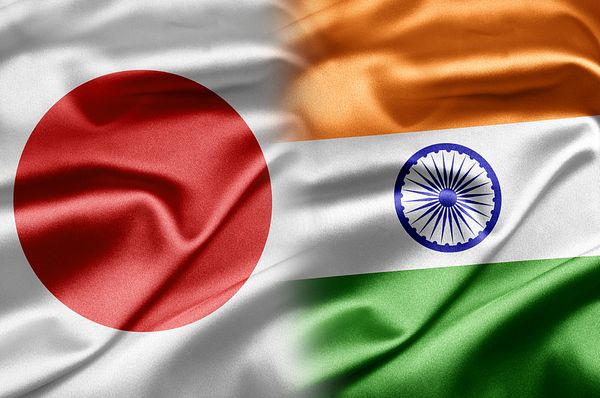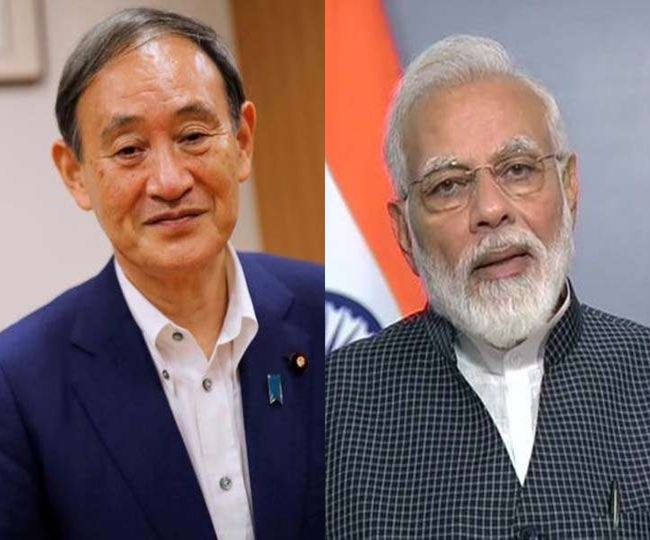
Today India and Japan are partners in peace, with a common interest in and complementary responsibility for promoting the security, stability and prosperity of Asia as well as in advancing international peace and equitable development.
The foundation of this was laid when Mr. Yashiro Mori, Prime Minister of Japan and Shri Atal Behari Vajpayee, then Prime Minister of India, agreed during the landmark visit of Mr.Mori to India in August 2000 to establish the “Global partnership in the 21st Century”. India is the largest recipient of Japanese aid and both countries have a special relationship with official development assistance. As of 2017, Bilateral trade between India and Japan stood at US $17.63 billion.
Historical Relationship
When India declared its independence from British colonial rule and governance on August 15, 1947, Japan was among the first Nations to recognize its sovereignty. India, on its part, declined attending the San Francisco peace Conference in 1951, arguing against the limitations being placed on Japan’s Sovereignty and pointing out the United state’s failing to take due recognition of the wishes of the Japanese people. India – Japanese relations enter their 70th anniversary in 2022.
Today, India and Japan share a global vision of peace, stability and shared prosperity, based on sustainable development. Shared democratic values, commitment to human rights, pluralism, open society, and the rule of law underpin the global partnership between the two countries. It was also decided that both countries would strive to develop closer dialogue and collaboration to secure peace, stability and prosperity in Asia, promote democracy, development and explore a new architecture for closer regional cooperation in Asia.
India-Japan Summits
The 14th India – Japan Annual summit was held at New Delhi on March 19,2022 in which Indian Prime Minister Narendra Modi and Japanese Prime Minister Fumio Kishida participated in the summit along with a group and senior officials. This summit was the first meeting of the two leaders. The previous India – Japan Annual summit took place in Tokyo in October 2018. This summit Marks the 70th anniversary of establishment of diplomatic relations between India and Japan and the 75th anniversary of India’s independence. The summit allowed a rejuvenation of shelved plans. Both the countries leaders reaffirmed that under the current international Circumstances, it is important for Japan and India, which share fundamental values such as democracy and rules of Law, to work closely together Bilateral as well as multilateral such as Japan – Australia – U.S toward realizing of ” free and open Indo – Pacific”.
Prime minister Narendra Modi and his Japanese counterpart Fumio Kishida held productive talks in New Delhi During which both the leaders discussed ways to boost Economic and cultural ties. At the summit. PM Modi Said that the Indo – Pacific region and the world need ” peace, Prosperity and Stability”. PM Kishida said the whole world has been shaken due to many disturbances,and it’s important for India and Japan to have a close partnership. The Japanese Prime minister Mr. Kishida also announced a plan to invest 5 trillion yen ($42 billion) in India over five years when he visits the country. This investment goal surpasses the 3.5 trillion yen in investment and financing over five years which was announced by the former Japanese Prime minister Shinzo Abe during his 2014 visit to India .

Last year, in October 2021, both the leaders via telephone meeting discussed the increasing alignment of perspectives, and robust cooperation, between India and Japan in the Indo – Pacific region. They also reviewed the progress of cooperation under the Quad framework in this regard.
In 2020, India and Japan signed an agreement Concerning Reciprocal Provision of supplies and services between the Armed forces of India and the Self – Defence Forces of Japan. India – Japan defence and security ties have strengthened in recent years and there is greater comfort in mutual engagement. It means both the countries have similar views but may speak differently in the UN. India’s term in the UN security council ends in 2023. India will have supported Japan for the Asian seat for the next two years. This will allow continuity in their coordinated efforts.
The India – Japan industrial competitiveness partnership roadmap, which is in operation since November 2021, addresses issues that Japanese companies faced in India but supports solutions to their problems through working groups on logistics and textile, cooperation in MSME and supply chain matters. This will help Indian and Japanese companies to become better partners and supply chain resilience initiatives between India, Japan, and Australia.
Another takeaway is that India – Japan Digital Partnership is running smoothly, for digital transformation and opportunities for Indian IT professionals as well as collaborations in the area of AI,IOT and other emerging technologies.
Way Forward
More collaboration and cooperation can prove beneficial to both nations, since India needs sophisticated technology from Japan. India and Japan have a lot of mutual interests in the fields of digital technology, Japan has the tech and India has the labour with raw materials. Close cooperation is the best measure to Combat China’s growing role in Asia and Indo Pacific, in physical as well as digital space.
